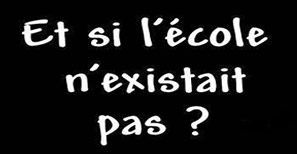Difference between revisions of "Language/French/Grammar/Conditional-Mood"
Jump to navigation
Jump to search
| Line 2: | Line 2: | ||
==When to use?== | ==When to use?== | ||
The conditional expresses the hypothetic and the possible: it describes events that are not guaranteed to occur. | The conditional expresses the hypothetic and the possible: it describes events that are not guaranteed to occur. | ||
==Examples== | ==Examples== | ||
*Il vous '''appellerait''' s'il savait que vous l'aimez = ''He would call you if he knew that you loved him'' | *Il vous '''appellerait''' s'il savait que vous l'aimez = ''He would call you if he knew that you loved him'' | ||
*Si vous nettoyez votre chambre, votre colocataire '''serait''' plus gentil avec vous = ''If you cleaned your room, your roommate would be nicer to you.'' | *Si vous nettoyez votre chambre, votre colocataire '''serait''' plus gentil avec vous = ''If you cleaned your room, your roommate would be nicer to you.'' | ||
| Line 14: | Line 12: | ||
==Videos== | ==Videos== | ||
<youtube> dc5axzEorGQ </youtube> | <youtube> dc5axzEorGQ </youtube> | ||
{{#seo: | {{#seo: | ||
Revision as of 10:06, 15 May 2017
When to use?
The conditional expresses the hypothetic and the possible: it describes events that are not guaranteed to occur.
Examples
- Il vous appellerait s'il savait que vous l'aimez = He would call you if he knew that you loved him
- Si vous nettoyez votre chambre, votre colocataire serait plus gentil avec vous = If you cleaned your room, your roommate would be nicer to you.
- Il mangerait s'il avait faim = He would eat if he were hungry
- Si nous étudiions, nous serions plus intelligents = If we studied, (then) we would be smarter.
